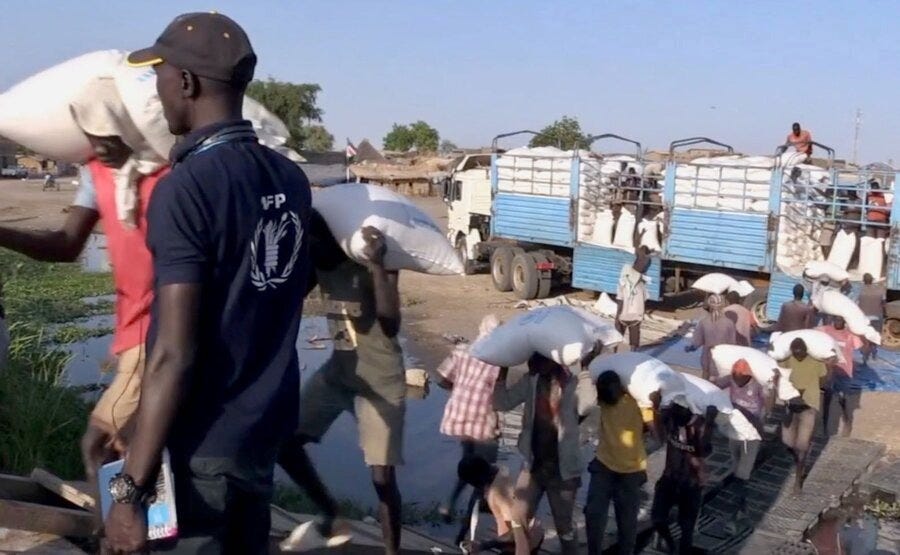Our Global Humanitarian System is Collapsing
Understanding the ripple effect of the US foreign aid freeze
When a man-made or natural disaster strikes, aid agencies must turn to donors, hat in hand, to fundraise for the response. This includes UN agencies like the World Food Programme and UNICEF, as well as international NGOs like the International Rescue Committee and Save the Children. Over the years, the UN has established a mechanism to consolidate these appeals through the Office for the Coordination of Humanitarian Affairs (OCHA).
It’s a relatively straightforward and streamlined process: agencies outline their needs, and donors pledge funds to support the response. Historically, the United States has been the largest single donor, accounting for about 40% of all emergency humanitarian relief funding.
But now, that funding has been abruptly cut.
The consequences of this decision have been profound, both for the people who rely on humanitarian assistance and for the professionals who have dedicated their careers to relief work. As my Global Dispatches interview guest today, Thomas Byrnes, explains, the freezing of U.S. foreign aid and the dismantling of USAID have triggered a collapse of the global humanitarian system. We discuss the ripple effects of this shock in detail, from the local clinics that will shutter in refugee camps to the geopolitical implications of mass migration as people look for food, shelter and safety.
Thomas Byrnes is the director of Market Impact, a humanitarian and development consultancy firm. We begin by exploring how the global humanitarian system functions, why the United States was its lynchpin, and the near- and long-term implications of the near-total upheaval of the world’s approach to humanitarian crises.
This episode is freely available across all podcast listening platforms, including Apple Podcasts and Spotify. But I need your support to keep our humanitarian journalism alive and thriving! You can use the button below to unlock a 40% discount. You can also show your support by paying the full amount. Everything helps. Thank you!
If you’d like to support at full price:



